Getting Into: Ulver (2004-2020)

| Written by: | RaduP |
| Published: | 30.04.2021 |
(1993-2003)
No band has had a trajectory outside of metal as fascinating as Ulver's. Starting out as a black metal band, incorporating folk elements, releasing a full on folk album as their just second album, and then starkly shifting gears towards electronic post-industrial landscapes. It's a band as chameleonic as contradictory. Who cut ties with the metal world, but still maintained immense relevance within it, not only for their metal albums, but for their eclectic and ever-shifting blend of genres that they've embarked on since.
We are now in the part of their career where the ties to their metal sound have long been severed. Garm became Kristoffer Rygg and left both Borknagar and Arcturus, Haavard only made sporadic appearances, and the closest the band went to having a metal sound was collaborating with Sunn O))). So, considering how there's a sizeable portion of the band's fanbase who hold everything released after 1997 in contempt, this article won't be appealing to as many people as the first part.
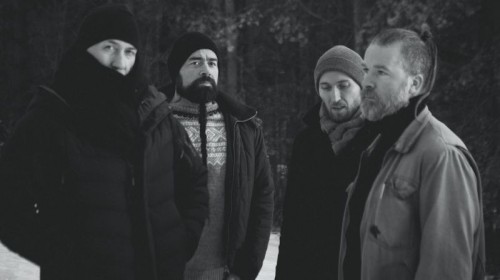
And yet, there's a lot to discover in this part of their discography, where they were not as much experimenting with different sounds just to see what works, but as more or less in control of what their sound was, and still pushing it to its borders, both in more ambiental, more avantgarde, and more accessible directions. The band became an actual band again, starting to have a stable lineup, perform live, and capture the hearts of more and more people. So it's no surprise that this part of their discography is also worthy of the Getting Into treatment, the article series started by our own Baz Anderson. And now, it is done.
The Main Records
If I commended the songs on the releases since Perdition City for anything other than being on soundtrack albums, it is because they often felt like a band experimenting with sounds to hone their skills rather than to actually make good songs. By the time Blood Inside dropped, their skills in industrial landscapes, glitches, neo-classical samples, and dramatic singing had definitely been honed, and it was time for a follow-up proper to Perdition City. The album still has a lot in common with its predecessor, with its darkjazz, post-industrial and trip-hop landscape, but Blood Inside is a much heavier and tense endeavor compared to the trippy ennui of Perdition City. The songs are much more developed as songs instead of as pieces of a soundtrack, and it does an excellent job of moving from dense and nauseating to quiet and subtle, with the momentum of the dark landscapes being sustained. Even so, it feels like Ulver stack just a bit too many layers, which would work better with some more space in the mastering. So if the album suffers from anything, it's too dense for its production at times (see "It Is Not Sound" and "The Truth"). The crowding of the albums works for good and bad, but it's mostly good, especially when you have Kristoffer Rygg's amazing vocal performance, guest spots from former members Czral and Haavard (whose guitar solo in "For The Love Of God" is a definite highlight). Though the album suffers a bit in the midpoint, its strong frontend and backend display the melting pot of sounds at their best.
Shadows Of The Sun is my favorite Ulver album pure and simple, and pretty much in my top 10 albums of all time. I know a lot of it comes down to personal preference and to how much this album connected to me at an important moment in my life, and listening to it now I can see how someone can feel it's too sombre and lethargic. To be fair, Ulver did kind of go all out on this part of their sound, making this record feel delicate, low-key and mellow. To call an Ulver album atmospheric is quite an understatement, but it comes in quite a stark contrast to the dense Blood Inside, while still keeping some of its qualities. There are moments that are "dense", but a lot of the moments work best because of their minimalism. Like that one piano note in the middle of "Funebre" that never fails to make my heart skip a beat. Both "Eos" and "Funebre" are my most-listened-to Ulver songs, and I have to admit that there are songs here I don't return to as often ("Vigil" or "What Happened") on their own, but they make perfect thematic sense on the album. The album is graced by what is likely my favorite Black Sabbath cover (with two runner-ups), and a surprisingly good production compared to its predecessor. Rygg's vocals are warm and soothing, but also at their most personal yet. They do drive the record quite a lot, but the album's soundscape lingers in the droning synths, with a lot of orchestral instrumentation to add a dramatic layer to it, including a lot of strings, trumpets from Jaga Jazzist's Mathias Eick, and theremin from Pamelia Kurstin, who has been Ulver's live theremin player since. The soundscape that results is both warm and brooding, but also apocalyptic and ethereal. With its pretty compact runtime and focused approach, it relies a lot on the listener's ability to connect to it (but then again, isn't that the case for all music?). It worked wonders for me.
For the first time in more than a decade, Ulver started to resemble an actual band. It's not completely clear who is and who isn't actually an official member at this point, but the Rygg/Ylwizaker/Sværen trio are joined by Daniel O'Sullivan on a bunch of instruments, Ole Aleksander Halstensgård on electronics, and Tomas Pettersen on drums. Some stayed as live members, some contributed to studio recordings up to today, but one thing was clear, this was a more band-focused album, evident by the fact that Ulver had started performing live again for the first time since 1993, even putting out their first live album, The Norwegian National Opera the following year. That said, the band is only dipping its toes into the band format, taking a more art rock-ish sound, complete with duets with Siri Stranger and Attila Csihar on "Providence", but with its feet still clearly grounded in a more atmospheric slow-burning approach akin to its predecessors, albeit with more analogue meat on the bones. It's even more song-oriented, which does lead to it losing some of its momentum on a full listen, with the worst offender being the closing 15-minute track which reminds me of Themes. But an upside is that tracks like "Norwegian Gothic" and "England" have infinite replay value. Wars Of The Roses, while not having that much in common with said war, is Ulver's most accessible album so far, and their most "transformative" one in more than a decade. It proved that they can successfully go into poppier territories without losing their identity.
Childhood's End is a pretty odd one, not because it is inaccessible or bizarre, but because it feels a bit unnecessary. It is Ulver's concept cover record, full of psychedelic pop songs from a bunch of mid-late-60s bands. Preceded by a "Eulogy for the Late Sixties" performance at Roadburn, which got immortalized in the Live At Roadburn album, which does have the benefit of having an extended jam dedicated to Can, which doesn't appear on Childhood's End. The choices of songs are somewhat odd too, with a lot of songs from band's I'm still unfamiliar with, but for the bands that I do know, they either pick "that one song", or as far from it as possible. For example "Today" is really not the Jefferson Airplane song I'd be curious to hear Ulver covering, while "I Had Too Much To Dream Last Night" is the only The Electric Prunes song that would be worth the honor. The performances do make the songs a bit darker and in line with the Ulver sound compared to the originals, while still keeping the psychedelic pop skeleton, and not changing the arrangements of the individuals besides the changes in tone. Them wanting to make the songs darker makes a lot of sense considering the Vietnam War cover art, which pretty much defined the counterculture movement of the era. It's an interesting sound to hear Ulver tackling, and a pretty cool listen, but they don't do anything too interesting with the sound, and it acts more like a springboard to discovering some 60s music rather than its own standalone Ulver album.
Ok, so there is another Ulver cover record besides Childhood's End, and it is the first part of Oddities And Rarities #1, as the second part is actually the soundtrack of Uno, so the two sides are pretty separate. Compared to Childhood's End, which had a focus, the ones here are gathered from a bunch of tribute albums, hence, as the title suggests, they don't have much in common. Did you ever want to hear Ulver cover KISS? Or them reciting a Charles Baudelaire poem translated in German and English? Granted, the Prince and Dead Can Dance covers are actually pretty great and can stand toe to toe with the best covers on Childhood's End. The soundtrack side has some early traces of Shadows Of The Sun, with heavy use of strings and synths. Far from the best of Ulver's soundtracks, so you can kind of see why this one had to be appended to a rarities compilation. So far, there hasn't been a Oddities And Rarities #2, but so far this one is more for completionists.
Messe I.X-VI.X is a sort of live album, made in collaboration with the Tromsø Chamber Orchestra and it was commissioned for the Tromsø Kulturhus, thus making it more of an "academic" Ulver album. But even though all of it was recorded in one day, the band insists that it is not a live album, as "We've spent long hours in the studio translating what happened that night." Even if the opener is almost completely orchestral, with some barely noticeable electronic touches, the orchestral and the electronic sides become merged soon after. The album glides between its two sides, but it never loses its cinematic feeling, competing with their actual soundtrack albums both in mood-setting and dynamism. The textures work fantastically together, working on the minimalism and the dynamic interplay of its two components, with the electronics also switching between glitchier samples and Shadows Of The Sun-esque droning. Only adding Garm's vocals on two tracks, they only make their debut more than halfway into the album. Ulver are no strangers to merging electronica and modern classicals, but Messe I.X-VI.X is the apex of their attempts, and a lot of that is owed to the extraordinary players in the chamber orchestra.
Though not necessarily known for collaborating with other artists toe to toe, Terrestrials sees Ulver collaborating with Sunn O))). It comes as no surprise considering that Daniel O'Sullivan and later Kristoffer Rygg collaborated with Stephen O'Malley in Æthenor. Conceived in between 2008 and 2012, Terrestrials features three songs, in which the first and the last have a stronger Ulver presence overall, especially "Eternal Return" also having Kris' vocals over it. Even so, the subdued droning guitars add a lot of character to the psychedelic nocturnal ambient pieces, and so do the strings and horns, a lot of them played by people who have also participated on Messe I.X-VI.X, in addition to some other Ulver records. There are points when I wish Sunn O)))'s presence was closer to how prominent it is on "Western Horn", which kinda makes Terrestrials the most metal thing Ulver participated in since 1998. As good as the album is, I can't help but wish the two collaborated more afterwards outside of Æthenor.
ATGCLVLSSCAP, whose name takes every zodiac sign from Aries to Pisces, was the first Ulver album to be "the new Ulver album" for me, as I became a fan somewhere around 2015. So I'm probably biased in favor of it, since it was my most-listened-to Ulver album at some point. And even if since I've come to enjoy some of their other albums more, it is this one I feel a sort of kinship to, and where each note from each song bears familiarity. "Cromagnosis" is easily in my top 5 Ulver songs. But I have to agree that the album is a bit too long for its own good, at 80 minutes, and it being technically a "live album" might put some people off. But Ulver are no strangers to live recordings being enhanced in the studio, making this feel live only in a jam sense, combining the live approaches of Messe and that one jam from the Roadburn album. The latter particularly seemed to predict the experimental krautrock direction of this album, but the percussion heavy ATG- expands it tenfold. This is simply Ulver at their most riveting and explosive. If Wars Of The Roses introduced the band formula to Ulver's music, ATG.. perfected it, as the chemistry here makes the jam feeling of the album feel lively. The drone workings of the Sunn O))) collab also bear a mark here, but the drones here feel more expansive and better integrated within the sound. ATG- is the result of all the experimentation done since Shadows Of The Sun, and yet it also doesn't sound like anything else they've done before. Except when it does, but that is because a sizable chunk of the album is reworking of previous Ulver tracks. And almost always, they find a way to improve upon them. A lot of ATG- might work so well because it builds on space ambient, krautrock and psychedelic drone music of the past instead of simply on "the Ulver sound", but the result is hypnotic, engaging, and 80 minutes that fly by so fast.
Riverhead sees Ulver returning to doing actual soundtracks, fitting considering how much of their music had already had a soundtrack-like feeling. But Riverhead is also the only Ulver album not to have any user reviews (yet) on neither Metal-Archives nor Rate Your Music. It is their lowest rated here. Even now when listening to it I am struggling to really say much about it. If their previous soundtrack albums could work as standalones, even with some consistency issues, Riverhead's appeal is mostly lost without the rest of its medium. It's mostly droning ambient, not ominous enough to be ominous, not ethereal enough to be ethereal. It has moments that are more compelling than others ("Father's Feud" sounds like a Wardruna B-side), and it is still worth the ceremonial one listen, especially since it's only 42 minutes long, but don't be surprised if it flies by and nothing sticks. It has one track called "Bored Of Canada", and that certainly describes the album better than I can.
A black metal band going pop is a very very uncommon trajectory, but considering how much Ulver worked with electronics and synths, and how they already approached art pop in Wars Of The Roses and psychedelic pop in Childhood's End, the move to synthpop makes a lot more sense. This one also references historical moments in passing, keeps Ulver's trademark gothic darkness, but unlike their previous pop forays, it's both original material and consistently accessible. This is a pop album, but there are tracks like Rolling Stone or Coming Home sound like a krautrock and a dark ambient take on pop music, while others range from Tears From Fear-esque to Depeche Mode-esque. But despite that, nothing feels out of place, even if Ulver's music was never this danceable before, and also never as centered around Rygg's warm vocals. He is in command in most of the album, with it's gothic art pop ballads drenched in moody synths, even with plenty of long-form instrumental sections. There are a lot of significant guest contributions, from the return of Haavard on "1969", to Hawkwind's Nik Turner on "Rolling Stone", Trollfest's Drekka Dag on "Coming Home". But the most impactful of the ones is the duets that Sisi Sumbundu does with Rygg on "Rolling Stone" and "1969". The result is a record that amps up the catchiness of Ulver's music and the warmth of Rygg's voice with some synthpop additions, without ditching their trademark somber ethos.
Sic Transit Gloria Mundi is the companion piece to The Assassination Of Julius Caesar, acting as a sort of B-side album, as well as a slight shift musically. What I mean is that these songs were clearly done in the same sessions as the album, but the tone of the album is a slight bit more romantic. "Echo Chamber (Room Of Tears)" is mostly skippable, but "Bring Out The Dead" could've stood toe to toe with any song from the album. The synths however sound a lot more actually synthwave-like, instead of like a darker take on art pop, which seemed to signal some future developments in the band's sound. The EP is concluded by a cover of Frankie Goes To Hollywood's The Power Of Love, and though ballads and covers are nothing new for Ulver, I think I had enough of Rygg singing the word "love" cheesily back on Childhood's End debut, and yet I can't help but feel a sort of glee at the cheesiness of it. Especially since it showcases Rygg's chops again.
Drone Activity is another left-turn for a band that had just gone pop. In a sense it is a combination of the two records that came before The Assasination, because it takes the krautrock and space ambient sounds of ATG-, as well as its half-live-half-studio setting, and its gargantuan length; and the uneventfulness of Riverhead. This being uneventful however works much better than it did on that soundtrack, as here the pieces, though massive in length and minimalistic in nature, are so tense and claustrophobic, Ulver at their most abyssal. The krautrock is run through a post-industrial filter to create desolate landscapes, and a drone filter to suck the soul out of the listener through its repetitions. It is music to get lost into. Which does make it a bit difficult to connect to, since if you don't get lost in it, there's really not much in Drone Activity to hang on to. It's an inhospitable album. It's also the first Ulver album I reviewed for Metal Storm, even if it was in the non-metal article series, and as I said it then: "Drone Activity is a huge canvas of dread and stasis."
My first impression of Flowers Of Evil was that it was merely a spiritual successor to The Assassination Of Julius Caesar. It is that, still exploring that synthpop infused sound. There are a lot of songs that could be switched between the two without breaking the album's stylistic consistency. But the more I listen to both albums, the more I realize that Flowers Of Evil lacks most of the krautrock/glitch/dark ambient that still permeated The Assassination, while also going headfirst into the bright synthpop sound, especially on songs like "Machine Guns And Peacock Feathers" or the surprisingly disco "Nostalgia". It is defiantly upbeat, even with its dark apocalyptic lyricism. If The Assassination was the "doom" side of "doom dance", Flowers Of Evil is the "dance". It's probably the one album where Ulver actually feel like they're having fun and they're not completely serious and somber. Which, at points, makes it feel like there was less effort put into making the album, even if for the most part, Ulver toy around with a playful sound quite successfully.
Where To Now
With Ulver's black metal past and Garm's membership of other metal bands long gone, this part of their discography finds them less likely to branch out into new projects. Though new members would join in, some of them with some membership in other groups, none of them really branched out the extent of the Ulver universe as much as the inclusion of Daniel O'Sullivan, with whom Garm worked in Æthenor.
Initially formed by Daniel O'Sullivan along with Sunn O)))'s Stephen O'Malley and Vincent de Roguin, the latter one would eventually be replaced by Ulver's own Kris Rygg and drummer Steve Noble. And so even though all five Æthenor records have a bit of Ulver in them, this one not only feels closest to Terrestrials, but by proxy to Ulver's sound as well. Based on free form improvisation, this one swaps the horns and drones of Terrestrials for jazz-like percussion, overarching synths, and guitars and vocal samples that give it a surprisingly cinematic feeling. Giving each track a title also makes each of them have more of a personality, with the synths of Ermanna being so absolutely gorgeous that it almost rivals most carefully composed music any way, even as the drums and guitars and electronics swerve in the background, but that only makes it feel more dynamic and alive. And so, even though it may not be their heaviest record, it's definitely their most dynamic and accessible.
In the previous article I mentioned that Arcturus' The Sham Mirrors is the last metal album that Rygg appeared on as a full time member. That isn't entirely true, but I guess that depends on your definition of metal. Head Control System finds Rygg doing vocals, joined by Daniel Cardoso (who since joined Anathema) doing everything else, and Murder Nature is a quite avantgarde take on alternative/nu metal. It's admittedly a lot more on the rock side of the alt metal sphere, with those "jump-da-fuck-up" being as heavy as it gets, but with enough moments that remind of Deftones or A Perfect Circle. The music constantly feels dense, but Garm's vocals always feel like an anchor within the chaos. Overall, there is more worthwhile alternative metal experimentation than bits that are cheesy, and a lot of it is reliant upon the listener's resistance to alt metal tropes, but Head Control System touch on those tropes better than the majority of bands from back in the day.
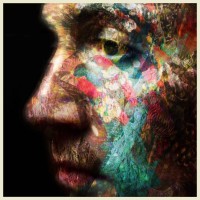
Daniel O'Sullivan- Veld




Daniel O'Sullivan (DOS) is a man of many projects, and his joining of Ulver in 2009 has expanded the scope of Ulver related projects. I will not be covering all of them, since this isn't an article about Daniel, but I picked three ones that could be a useful springboard. Veld is the first album he released under his own name, and there's a lot here that sounds like a mix between Ulver (especially in terms of vocals), Kayo Dot and Brian Eno. It is a progressive brand of pop ran through uncanny sun-drenched psychedelia, odd electroacoustics, and ethereal ambient. It is a truly contradictory record in tone, feeling both comforting and peaceful, but in a very uncanny way, as if following a dream logic. Obviously it varies throughout the record's long runtime, with there being a lot to unpack here. It feels like there is a bit of everything from DOS' other work, but for the purposes of our Ulver article, I'll have to say that either Rygg is an uncredited guest, or DOS does uncredited backing vocals, because those sound way too similar at times.

Guapo - Five Suns




Guapo isn't what you'd call a DOS project as much as a band that DOS joined for a stint, with Five Suns being the first of the two albums he did with the band. Here Guapo is a trio, with drummer Dave Smith, guitarist/bassist Matt Thompson, and keyboardist/guitarist DOS. Five Suns is what you would call a modern prog album, meaning it takes inspiration from stuff like Magma, mid 70s King Crimson, Ruins, Univers Zero, so it has its Zeuhl/Jazz-rock/RIO niche. Five Suns is very focused on a jam-like repetition held together by a strong rhythm section, with bursts of energy all throughout. Opening up with an instrumental 5 section 45 minute suite, it just keeps building that energy and the jams feel manic. It's prog with a muscle. It's explosive and cathartic. And the final track strikes them on a more relaxed first-wave-of-post-rock side.

Miracle - The Strife Of Love In Dream




Given that Ulver went down the synthpop path in the previous year, is it any surprise that one of DOS' projects released one too? Except- Miracle had released synthpop stuff in 2011 and 2013 too. There's huge overlap with Ulver's synthpop stuff, made more evident by the reminiscence in the vocal styles between the two, but Miracle's is a lot more mechanical and horror synth inspired, plus it also features some Sisters Of Mercy-esque vocals. The duo is composed of DOS and Zombi's Steve Moore, and the Zombi part of the sound is also clearly felt, with both the synths and the guitars sounding extremely 80s-ish, and you can also clearly tell that Steve Moore did some horror movie soundtracks. A "dark alley sci-fi action movie" type of darkness compared to Ulver's "historical angst" type of darkness. It's certainly a nice other side of the same synth coin, one that is still veiled in darkness.
Overview
Though there is not much here to like for fans of heaviness, there is a lot to like for fans of darkness. Pensive, somber, gothic, are all parts that have stuck with Ulver's sound no matter what skin they shed. Even at their poppiest. Their versatility ensured that they would have a discography whose exploration would be rewarding, even to the most singular of tastes.
 | Written on 30.04.2021 by Doesn't matter that much to me if you agree with me, as long as you checked the album out. |
Comments
Comments: 5
Visited by: 103 users
| BitterCOld The Ancient One |
| RaduP CertifiedHipster |
| phanto Posts: 163 From: Sweden |
| Bad English Tage Westerlund |
| jupitreas hi-fi / lo-life |
Hits total: 2778 | This month: 45

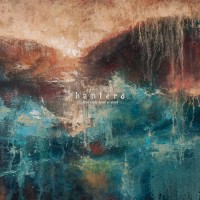




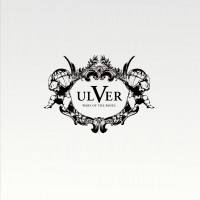
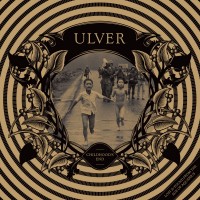
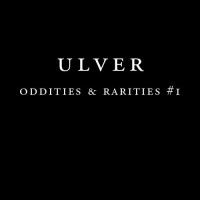
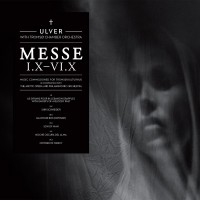
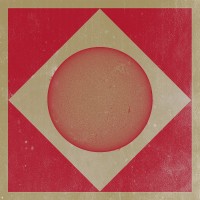
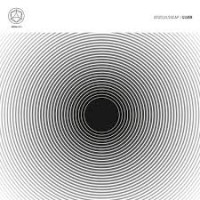
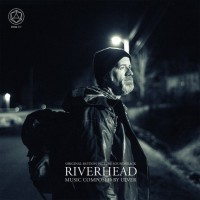
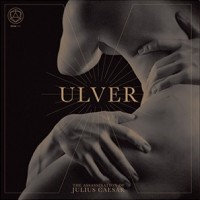
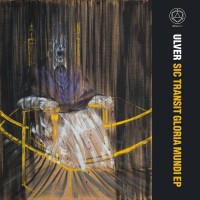
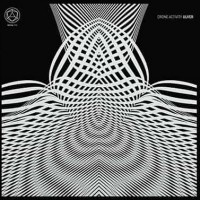
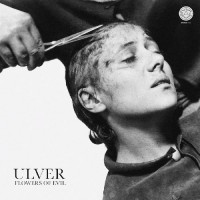
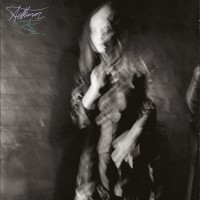

 apos;'
apos;'